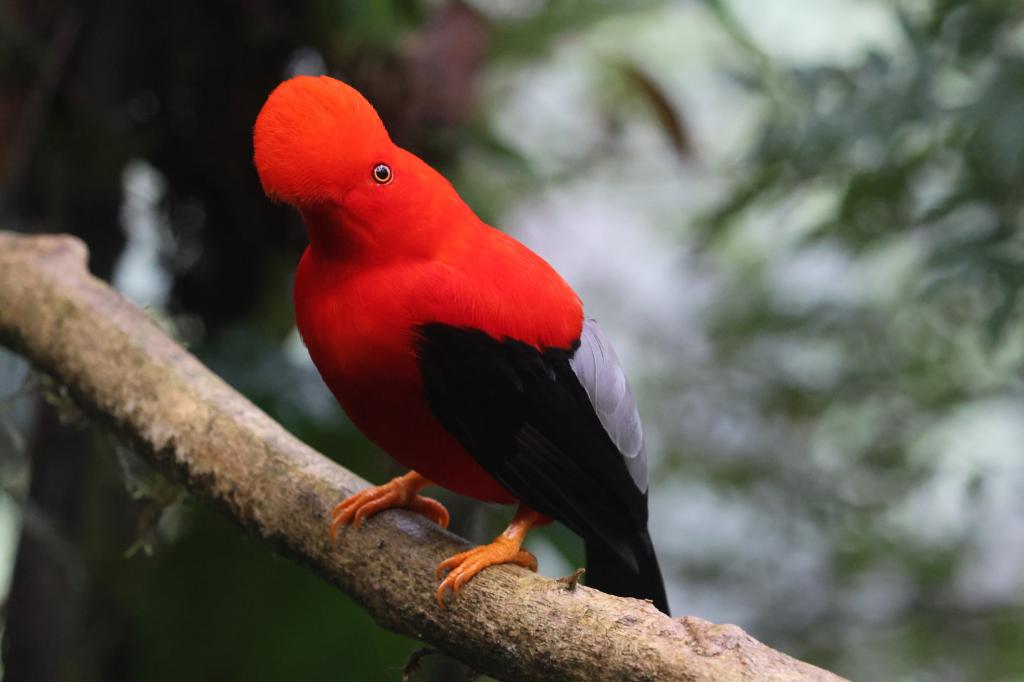COP 16 in Cali Delivers Key Outcomes for Nature but Questions Remain on Funding
Delegates departed from the United Nations Biodiversity Conference (CBD COP 16) yesterday after two weeks of negotiations in Cali, Colombia. The talks, which comprised the biggest biodiversity COP to date, focused in large part on how to implement and finance the Global Biodiversity Framework (GBF), adopted two years ago, as well as how to measure progress.
"COP 16 was an opportunity to double down on our commitment to halt and reverse biodiversity loss and ecosystem degradation," says Alec Crawford, Director of Nature for Resilience at IISD. "There were some very real wins, and the Colombian government should be applauded for the energy, coordination, and strong sense of community that they brought to the conference as well as to the profile of biodiversity. But the lack of progress on some key negotiation items is concerning."
First, the positive. The critical role of Indigenous Peoples and local communities in biodiversity protection was elevated through the adoption of a new work programme and creation of a permanent body of the CBD to represent their interests. A series of modalities for placing into effect the multilateral benefit-sharing mechanism from the use of digital sequence information on genetic resources were adopted, and the Cali Fund was established. Further pledges were made to support and expand the GBF Fund, to the tune of USD 163 million. And modalities for ecologically or biologically significant marine areas were agreed.
Also encouraging was the decision on climate change and biodiversity loss, as well as the attention—both in the negotiations and across side events—to the need to align related international efforts. "These crises are inextricably linked, we can’t tackle one without the other," says Crawford. "Thankfully, negotiators continued to explore how to more effectively bring these two agendas together."
Without new biodiversity plans in place, governments will be hard pressed to protect and restore nature in a way that reverses the catastrophic losses we’re witnessing across many ecosystems.
National Biodiversity Strategies and Action Plans (NBSAPs) are critical for implementing the GBF, and countries were expected to submit updated NBSAPs in line with the framework in advance of the COP. By the end of the conference, however, 119 countries had submitted national targets aligned with the GBF but only 44 had submitted updated NBSAPs. "It’s very clear that more support is needed for developing countries to ensure NBSAPs are revised and aligned with our collective 2030 biodiversity targets," says Crawford. "National policies and financing plans to support implementation must also urgently follow. Without new biodiversity plans in place, governments will be hard pressed to protect and restore nature in a way that reverses the catastrophic losses we’re witnessing across many ecosystems."
The lack of agreement on several financing decisions needed to address the biodiversity crisis ultimately led to the suspension of COP 16. Pledges continue to fall well short of the estimated USD 200 billion needed annually to tackle the biodiversity crisis. And the Cali Fund is—at least provisionally—voluntary, lending a lack of clarity to how much it can realistically generate.

"It’s no surprise that we need to rapidly increase the amount of funding available for nature," says Crawford. This includes more funding for nature from developed countries, repurposing environmentally harmful subsidies, and providing positive incentives for protecting nature. And yet little progress was made at COP 16 on financing, despite—and likely because of—the enormous scale of funding at stake. We need to raise our ambition on positive finance but can’t do so without ending disproportionally more harmful financial flows; only by doing both can we achieve optimal impact for people and planet.
"The host government’s theme for COP 16 was 'Making Peace with Nature'," notes Crawford. "This theme holds a double meaning: not only is it an urgent call to halt humanity’s assault on the natural world, but it also speaks to the central role that nature can play in building peaceful, just societies. Colombia’s declaration on the theme is a clarion call for governments to learn from the failures of the past, realize the promise of the GBF, and put nature back at the centre of peace and development. Hopefully they're listening."
See full coverage of CBD COP 16 at IISD Earth Negotiations Bulletin.
You might also be interested in
IISD Annual Report 2023–2024
While IISD's reputation as a convenor, a trusted thought leader, and a go-to source on key issues within the sustainable development field is stronger than ever, the work happening outside the spotlight is just as valuable.
Financing for Natural Infrastructure Projects
This report shows how private capital can finance natural infrastructure to meet our water needs, making financing decisions, and investment benefits.
Global Infrastructure Facility: Making climate-smart infrastructure bankable
There are many drivers of climate change, but few would disagree that energy infrastructure built according to “business-as-usual” standards is a major one. The Global Infrastructure Facility (GIF) is playing a positive role by preparing bankable, climate-smart projects that help countries build low-carbon energy infrastructure and encourage greater energy-efficiency measures.
November 2024 | Carbon Minefields Oil and Gas Exploration Monitor
In October 2024, 20 oil and gas exploration licences were awarded across three countries, with a significant portion granted by Brazil.
